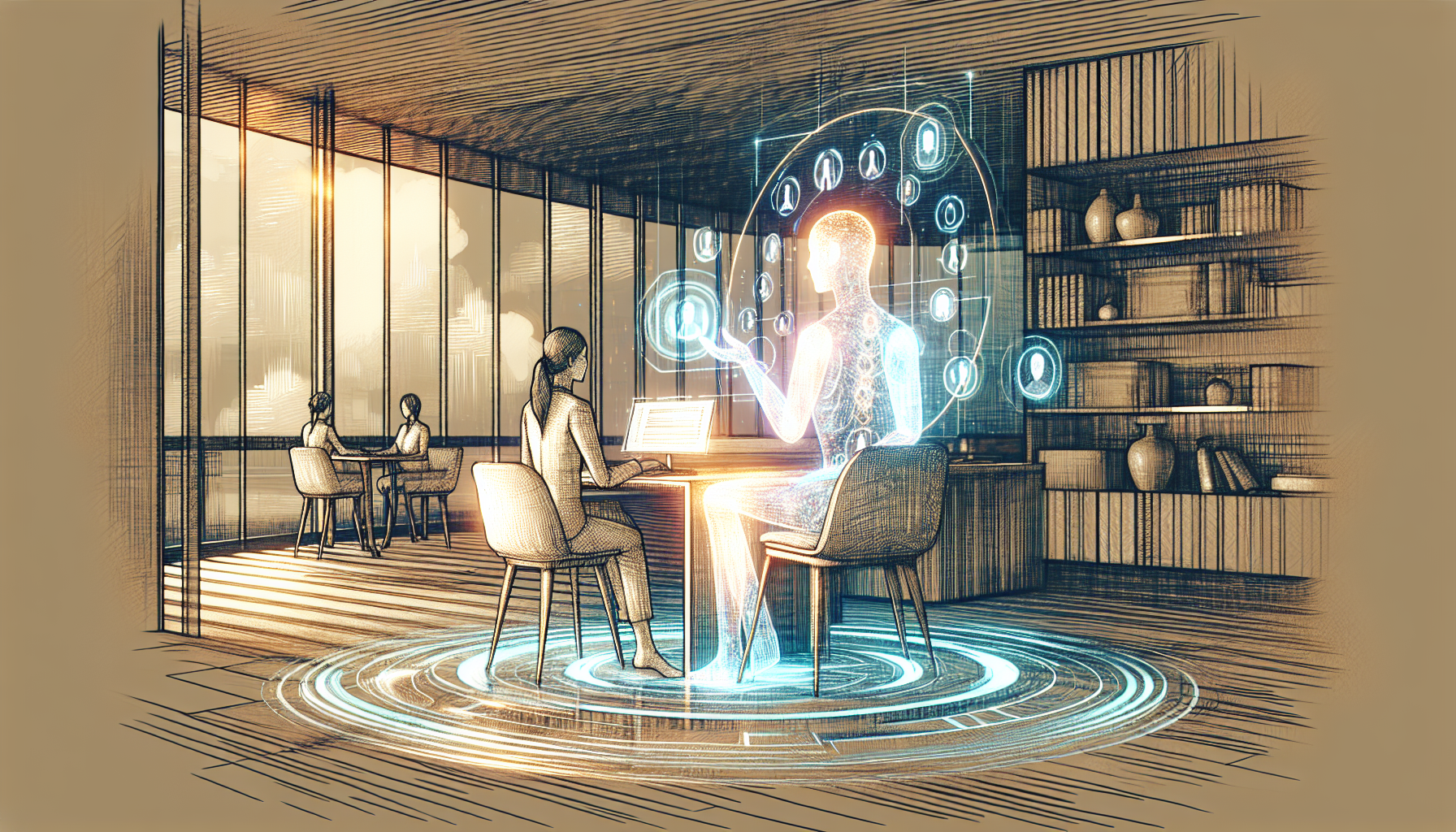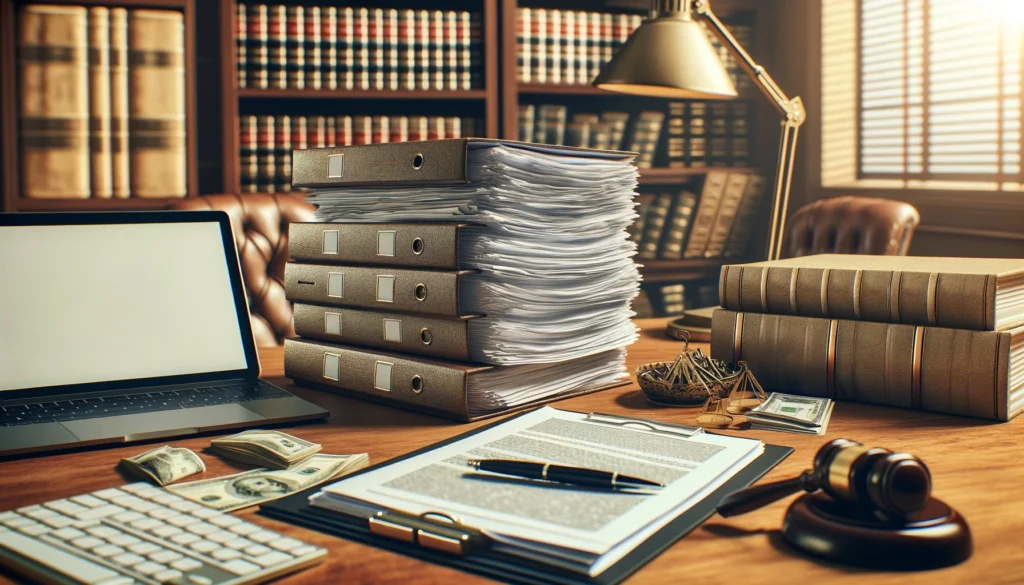
Setting the Scene: The Modern Paralegal’s Challenge
The landscape of personal injury mediation is evolving rapidly. With increasing caseloads and the complexity of cases, modern paralegals find themselves under pressure to manage and streamline vast amounts of data and documentation efficiently. Traditional methods are no longer sufficient to keep up with the growing demands. To maintain high standards and ensure swift resolution of cases, legal professionals are in dire need of tools that can enhance productivity and accuracy.
Enter artificial intelligence, particularly tools like ChatGPT, which can significantly alleviate the burden on paralegals by optimizing and automating many aspects of the mediation process.
Harnessing AI: Why ChatGPT is a Game Changer
ChatGPT, developed by OpenAI, is a language model based on the groundbreaking GPT-4 architecture. Its ability to comprehend and generate human-like text makes it an invaluable asset in legal workflows. By integrating ChatGPT into their processes, legal teams can accomplish tasks more swiftly and with higher precision.
One of the primary benefits of ChatGPT is its versatility. It can assist with tasks ranging from drafting complex legal documents to conducting in-depth research and ensuring effective client communication. Its role in automating routine tasks allows paralegals and lawyers to focus on more strategic aspects of their cases, thereby enhancing overall productivity and client satisfaction.
Also read:
Getting Started: Essential Setup and Integration Tips
Implementing ChatGPT in a legal setting requires careful consideration of privacy and data management. Ensuring data confidentiality and compliance with legal standards is paramount. Begin by:
- Setting up secure access: Use encrypted channels and secure APIs for data exchange.
- Data management: Implement protocols to manage and delete sensitive data regularly.
- Integration: Link ChatGPT with existing legal software and tools to create a seamless workflow.
Key integrations could include document management systems, calendaring tools, and communication platforms. Properly setting up these integrations ensures that ChatGPT can efficiently pull and push data, making the mediation process smoother.
Also read:
Crafting the Perfect Prompt: The Art of Directing ChatGPT
The effectiveness of ChatGPT heavily relies on the precision of the prompts provided. Crafting clear and contextually rich prompts is essential for obtaining useful outputs. Here are a few tips for formulating precise prompts:
- Be specific: Clearly state the task and provide necessary context.
- Use examples: Provide examples of the desired output to guide the AI.
- Iterate: Refine prompts based on the responses received.
Consider these nuanced prompt examples for legal tasks:
- “Draft a settlement agreement for a personal injury case involving a car accident. Include clauses for indemnification and confidentiality.”
- “Review this deposition transcript and summarize key points related to the liability argument.”
- “Generate a client update letter regarding the status of their mediation scheduled for next month.”
With the right techniques, directing ChatGPT becomes a powerful method to handle complex legal tasks efficiently.
Also read:
Streamlining Document Preparation
Document preparation is a significant part of the mediation process, and ChatGPT proves exceptionally capable in this area. From drafting initial pleadings to finalizing settlement agreements, ChatGPT can handle a variety of documentation tasks. Here are a few ways it can assist:
- Drafting documents: By providing detailed prompts, ChatGPT can draft initial pleadings, discovery requests, and settlement agreements.
- Reviewing documents: ChatGPT can read through and identify inconsistencies or errors in existing documents.
- Example prompts:
- “Draft an initial pleading for a personal injury case involving a slip and fall accident. Ensure it includes all necessary legal claims.”
- “Review this settlement agreement draft and highlight any sections that might need additional legal scrutiny.”
By handling these tasks, ChatGPT not only saves time but also enhances the accuracy and professionalism of the documents being prepared.
Also read:
Research Like Never Before: AI-Powered Legal Research
Legal research is another area where ChatGPT can significantly streamline operations. It can process vast amounts of information quickly and provide concise, relevant insights. Here are ways to leverage ChatGPT for legal research:
- Quick research: Obtain summaries of relevant case laws or statutes.
- In-depth analysis: Generate comprehensive research reports on specific legal issues.
For effective research, it’s crucial to ask precise questions. For example:
- “Provide a summary of recent case law regarding contributory negligence in personal injury cases.”
- “Explain the key differences between mediation and arbitration in civil cases.”
With these capabilities, paralegals can access high-quality legal research quickly, enabling more informed decision-making.
Also read:
Enhancing Client Communication
Client communication is a cornerstone of legal practice, requiring a balance of professionalism and empathy. ChatGPT can aid in drafting correspondence that maintains this balance. Key applications include:
- Drafting updates: Create progress reports and status updates for clients.
- Preparing sensitive messages: Formulate communications concerning key case developments or sensitive information.
Ensuring the correct tone and clarity is vital. Example prompts include:
- “Draft a client update letter explaining the new mediation date and what to expect.”
- “Compose an email informing the client about the initial settlement offer received from the insurance company.”
These capabilities ensure that clients remain well-informed and engaged throughout the mediation process.
Also read:
Scheduling and Coordinating Mediation Sessions
Organizing and managing the myriad appointments involved in the mediation process can be a logistical challenge. ChatGPT can assist by:
- Managing calendars: Track and organize mediation sessions and related appointments.
- Sending reminders: Draft and send reminders and follow-ups to clients and other parties involved.
Example prompts for this include:
- “Schedule a mediation session for [client name] on [date] at [time] and send calendar invites to all parties.”
- “Draft a reminder email for the client about their upcoming mediation session next week.”
With ChatGPT handling scheduling, paralegals can ensure that all timelines are adhered to, reducing the risk of missed appointments.
Also read:
Troubleshooting: Overcoming Common Challenges
Despite its numerous benefits, integrating ChatGPT into legal processes can present challenges. Common issues include:
- Data privacy concerns: Address these by implementing robust security measures.
- AI accuracy: Continuously refine prompts and review outputs for accuracy.
Best practices for overcoming these include regular training sessions for users and ongoing monitoring of ChatGPT’s performance to ensure improvements over time.
Also read:
Looking Ahead: The Future of AI in Legal Work
AI technology is continually evolving, promising even more advanced applications in the legal field. Emerging trends include more sophisticated natural language processing capabilities and deeper integration with legal analytics tools. Preparing for these advancements involves staying informed about AI developments and being ready to adopt new technologies as they become available.
Also read:
Wrapping It Up: Empowering Paralegals with AI
Integrating ChatGPT into the personal injury mediation process can significantly enhance efficiency, accuracy, and client satisfaction. Paralegals, empowered with this technology, are well-positioned to meet the increasing demands of modern legal practice. Proactive adoption and consistent optimization of these AI tools are essential for maintaining a competitive edge in the legal landscape.


